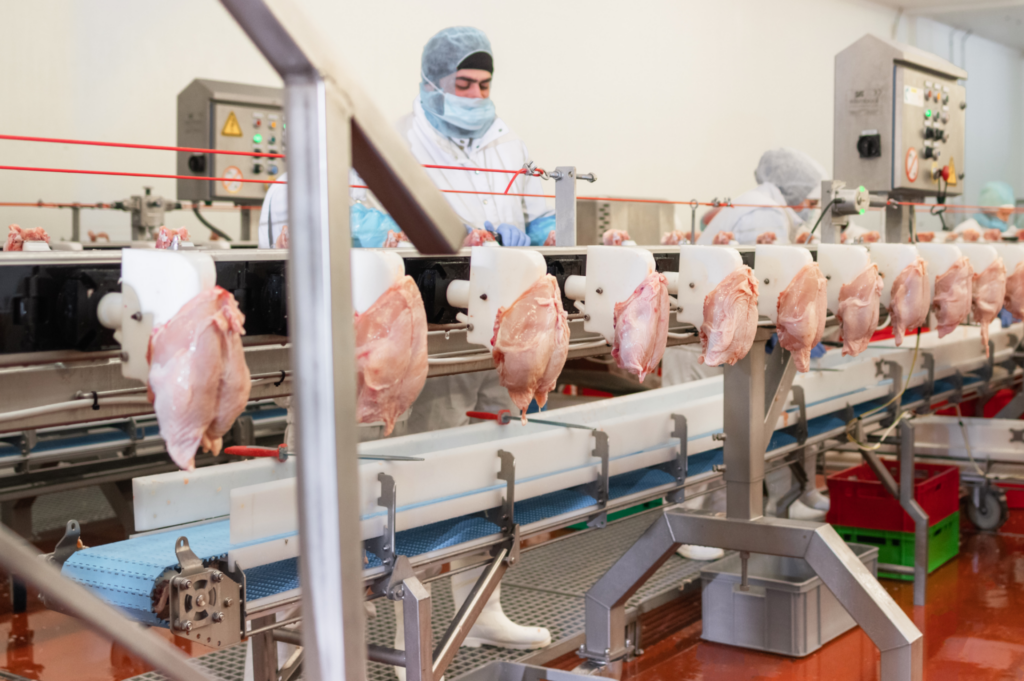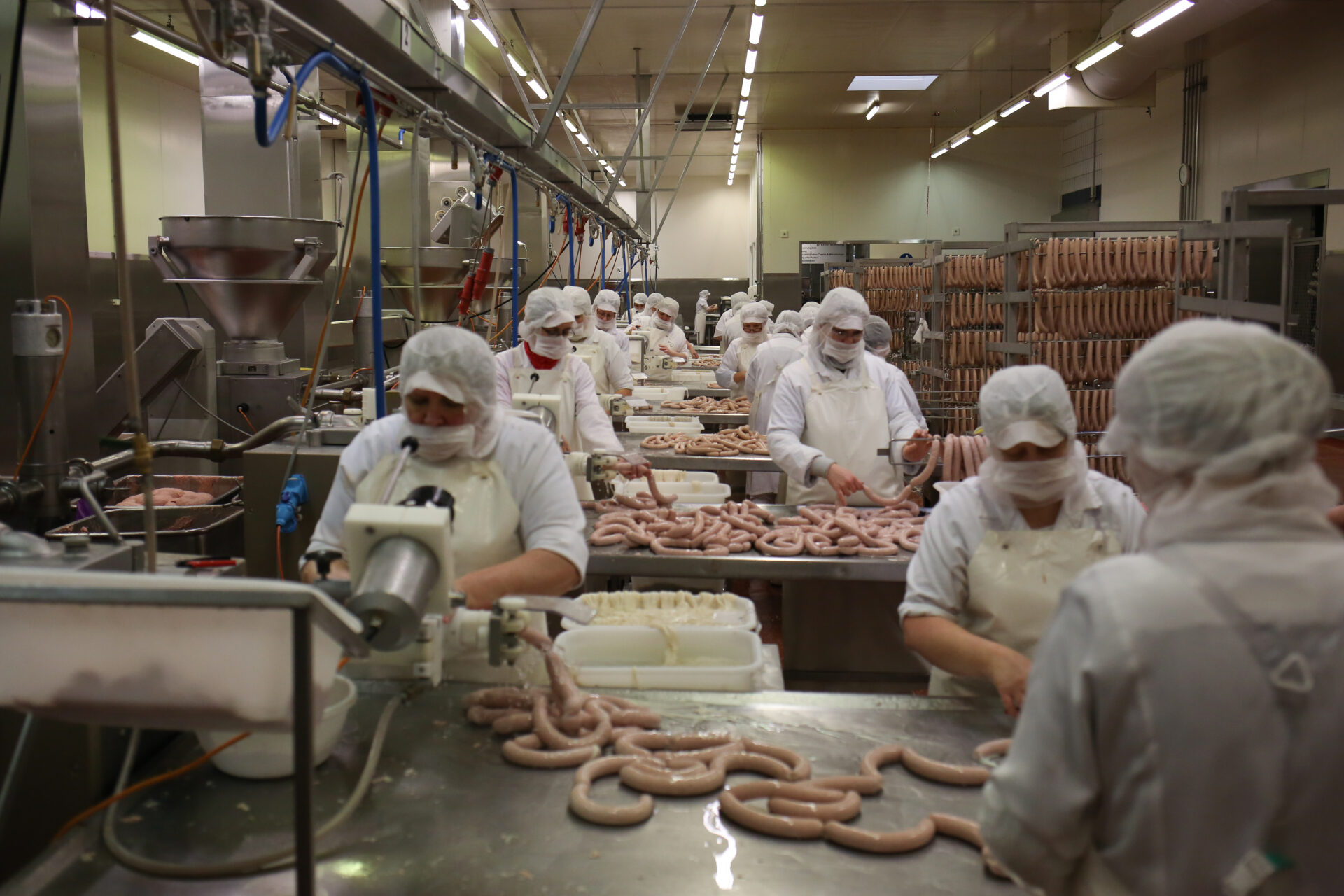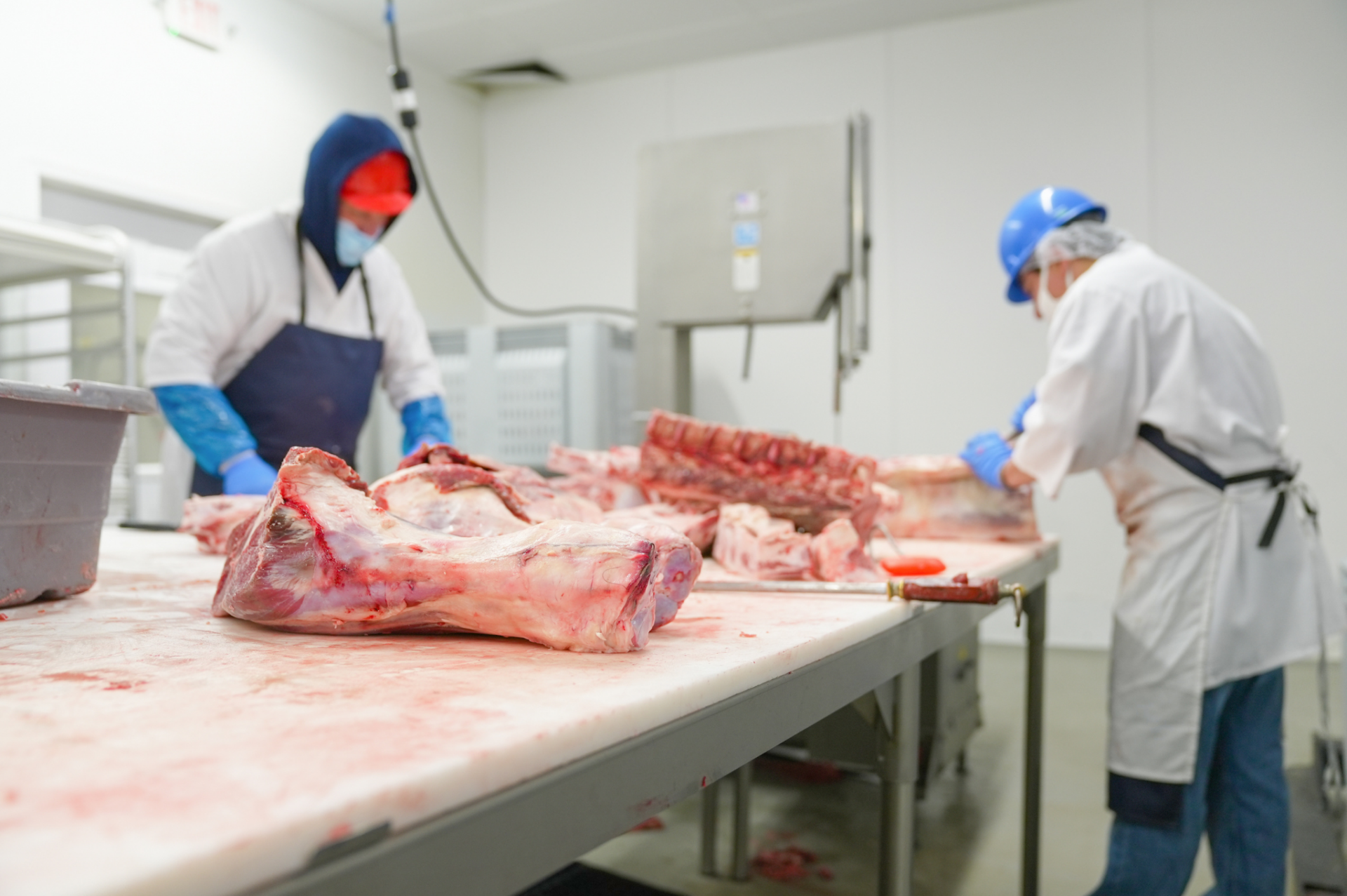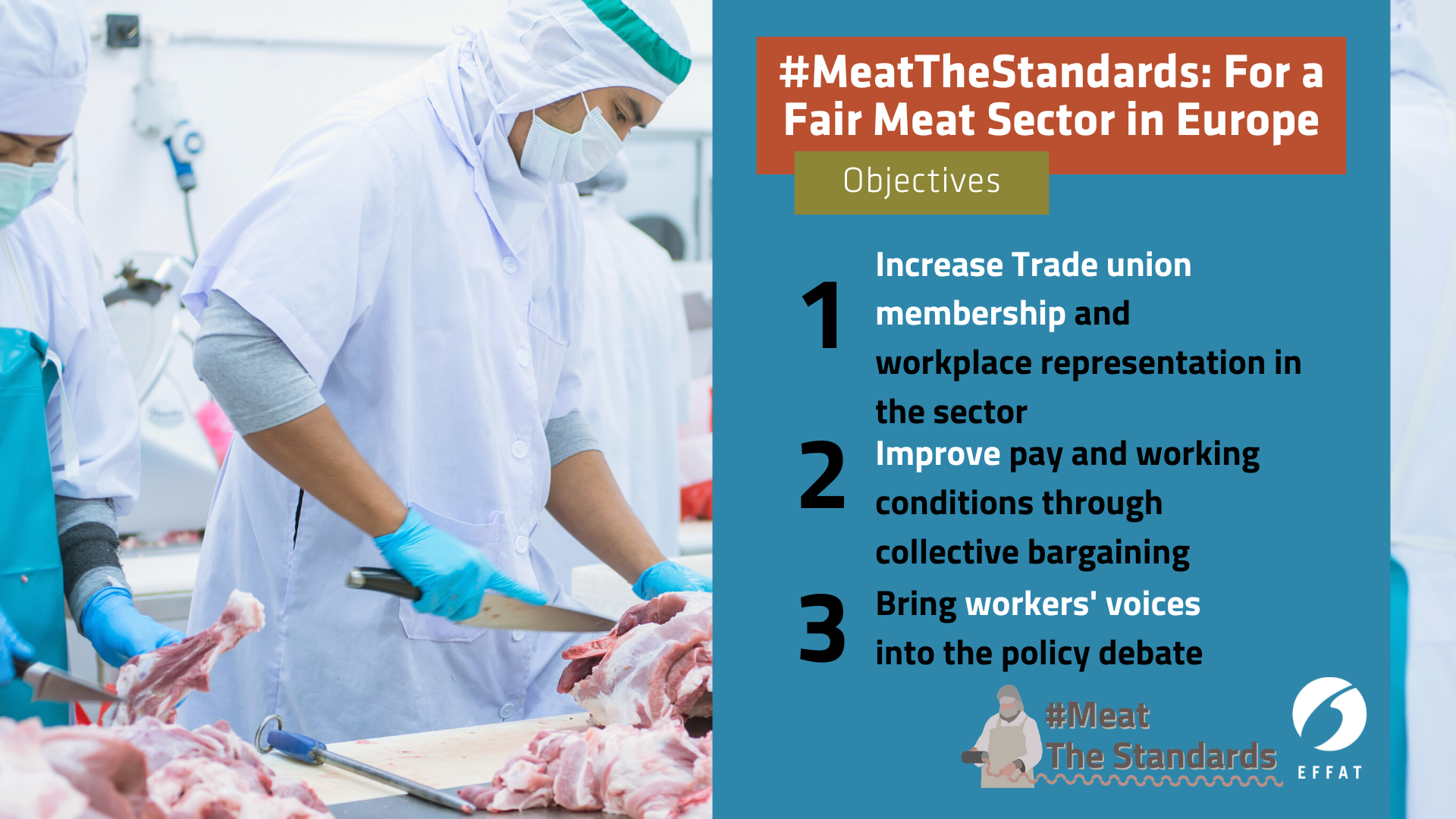With precarious work arrangements, deplorable health and safety conditions, and aggressive subcontracting practices, the meat sector, both in Europe and beyond, is globally renowned as one of the hardest to work in. Companies dodging their responsibilities, while making millions in profit is a big – if not the biggest – part of the problem.
As a trade union representing meat workers, EFFAT, the European Federation of Food, Agriculture, and Tourism Trade Unions won’t give up.
#MeatTheStandards is a Europe-wide trade union campaign to dignify meat workers by raising their labour standards.
"Only a couple of days ago, the Irish police raided a meat plant where 52 workers out of 150 were found to be illegally hired, exposed to exploitation, and enjoying none of the protections afforded to all other workers". - Greg Ennis (SIPTU – Ireland)
"In Italy, meat workers are often the victims of a system of subcontracting and fake cooperatives that has infiltrated the production system and that, in addition to not applying national labour contracts, encourages the spread of blatant forms of exploitation and illegality". - Giovanni Mininni (FLAI-CGIL – Italy)
A wealthy, yet non-healthy sector
You’re not hearing the voices from some exploitative sectors in a developing country. These are our fellow European trade union leaders describing, in 2022, the dire reality of hundreds of thousands of workers employed in one of the most prolific sectors of the European economy: meat.
With a turnover of 230 billion Euros and a presence of 32,000 companies, the meat sector employs a workforce of approximately one million people.
Yet, while regulators have set high bars in the sector for animal welfare and environmental standards, the same cannot be said for the working conditions of those employed in meat plants, whom often don’t enjoy basic labour rights.
From overcrowded accommodations and lack of health and safety standards to no social security coverage, job insecurity, long working days, and poverty wages. These are only some of the hardships many meat workers face across Europe.
Moreover, many companies cut costs and escape employer liabilities through abusive subcontracting, fake workers’ cooperatives, and bogus self-employment. The use of irregular intermediaries is a way for companies to dodge their responsibility to provide decent conditions for workers, many of whom are migrants from Eastern Europe or third countries, forced to accept starvation wages and overcrowded accommodations.
Just recently, shortly after the Kremlin invaded Ukraine, some employees of the slaughter giant Tönnies were found at the Ukraine-Poland border, conveniently looking for cheap labour amongst those whom had just become war refugees.
COVID-19 sounded the alarm
As an EFFAT report investigated in 2020, the recent pandemic has predictably unveiled the scourges of the sector. The related, intense media coverage across Europe exposed to the world the inhumane treatment of workers that has persisted for years.
In Europe and the US alone, it is already estimated that nearly 30,000 meat plant workers contracted COVID-19. And while unhealthy proximity in the production line, carpooling, and the sharing of overcrowded accommodations made infections in meat companies across the globe soar, the pandemic sounded the alarm on the urgency to finally fix the rotten labour system embedded in cheap meat production.
The exploitation of workers in the meat sector extends beyond Europe and the fight for better wages and acceptable standards is global.
In North America, for example, the high levels of COVID-19 infection which were prevalent in meat packing led to a successful campaign by the United Food and Commercial Workers Union (UFCW) to lift wages and improve safety standards.
In Brazil, unions joined forces to fight the Ministry of Labour's proposals to withdraw or weaken health and safety legislation in the meat sector.
In Germany, Europe’s biggest meat producer and the country with the most COVID-19 cases in the sector, the Union NGG carried out a tireless campaign leading to the adoption of the Occupational Safety and Health Control Act, a game-changing law banning subcontracting and limiting temporary agency work in the meat industry.
In Denmark, meat workers are covered by collective bargaining agreements and the level of trade union membership is very high. Nevertheless, Danish meat workers still suffer from unfair competition and job losses that stem from the challenging conditions in other European countries.
In Ireland, nine out of ten workers in the meat processing industry didn’t have the right to a sick pay scheme until two years ago, significantly contributing to the spread of COVID-19 within the workplace.
Consequently, SIPTU, an EFFAT affiliate in Ireland, ran a campaign in 2022 for safer working protocols and the need for statutory occupational sick pay through a national safety protocol agreement with the Meat Industry Ireland (MII) as well as the enactment of legislation on occupational sick pay provision.
In Italy, as in other countries, the meat sector widely relies on abusive subcontracting practices. The dominant business model of the Italian meat sector is based on the use of bogus/fake workers’ cooperatives which are outsourced parts of the business cycle and allow meat companies to maximise profits at the workers' expense.
A new European meat sector
As poverty wages in one Member State put pressure on wages and working conditions in other European countries, the issues affecting the meat sector are far from being only national. Moreover, the sector has a strong transnational dimension as it relies on foreign capital, high levels of trade, and the contribution of mobile and migrant workers. A new vision for the sector must therefore be built at European level and both national governments and the EU institutions have a responsibility to act.
Urgent and effective solutions are needed to support stronger trade union representation in the sector, increased collective bargaining coverage, and a concrete shift in policy response.
Based on our longstanding demands to reform the meat sector, EFFAT, the IUF and their affiliates across Europe call for urgent actions, including: EU binding initiatives regulating subcontracting leading to direct employment, tackling gang masters and abusive intermediaries, ensuring social security and decent accommodation for all mobile and migrant workers, and enhancing inspection and trade union counselling services on the ground.
With #MeatTheStandards, we call for policymakers and the EU institutions to see the reality of a sector in need of urgent reform: meat workers deserve respect and cannot wait any longer.
Kristjan Bragason, EFFAT General Secretary
#MeatTheStandards
About EFFAT
EFFAT is the European Federation of Food, Agriculture, and Tourism Trade Unions, also representing domestic workers. As a European Trade Union Federation representing 116 national trade unions from 37 European countries, EFFAT defends the interests of more than 25 million workers towards the European Institutions, European employers’ associations, and transnational companies.
EFFAT is a member of the ETUC and the European regional organisation of the IUF.




